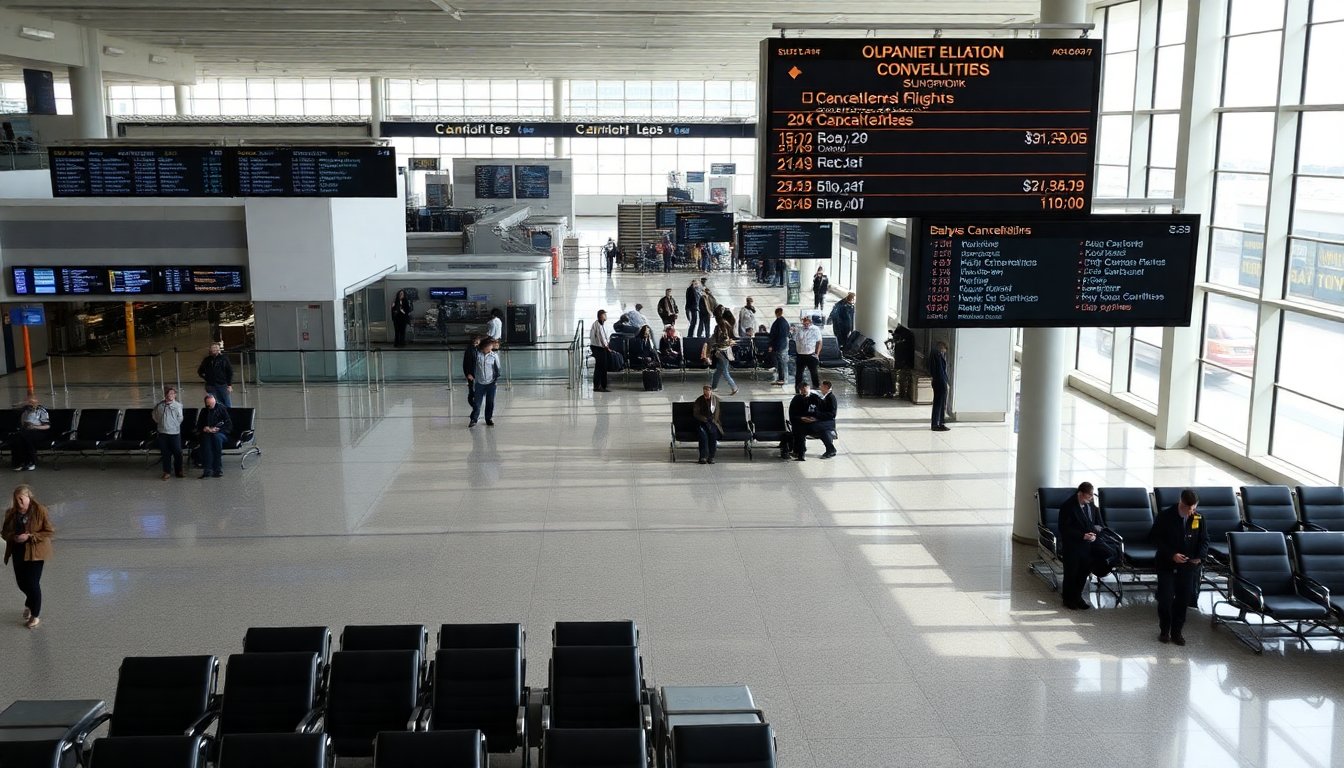Table of Contents
The ongoing government shutdown has triggered significant flight reductions at major airports throughout the United States. The Federal Aviation Administration (FAA) is currently dealing with staffing shortages among air traffic controllers, compelling a reassessment of air traffic operations. At this stage, the FAA has enacted a 10% reduction in air traffic at more than 40 high-volume airports. This measure arises from the growing number of controllers unable to work due to the financial burdens caused by missed paychecks.
Impact of ongoing air traffic controller shutdown
The air traffic controller shutdown has now reached its 40th day, significantly affecting operations. Attendance among controllers has sharply declined, with many choosing not to report for duty. This situation stems from concerns over missing a second paycheck.
The Federal Aviation Administration (FAA) has reduced air traffic as a safety measure, attempting to manage the limited number of available controllers. According to Marc Scribner, a senior analyst at the Reason Foundation, this ongoing shutdown could have serious ramifications for daily flights, potentially resulting in thousands of cancellations.
Impacts on holiday travel
As the holiday season approaches, the implications of flight reductions become increasingly significant. Travelers should prepare for a higher likelihood of cancellations and delays, especially in major cities such as New York and Chicago. The Federal Aviation Administration (FAA) has indicated that if the government shutdown continues, flight reductions could reach as much as 20%. This situation raises concerns for families and individuals planning travel during this busy period, as they may encounter substantial difficulties in reaching their destinations.
Safety and operational integrity
Safety continues to be a primary concern for the Federal Aviation Administration (FAA). According to Scribner, travelers can feel assured about the safety of their flights. However, it is important for them to remain aware of possible disruptions to their schedules. The FAA is dedicated to upholding high safety standards, which requires implementing certain operational adjustments. As air traffic controllers face challenges such as working without compensation and increased stress, the FAA is taking proactive measures to address staffing shortages and ensure safety is not compromised.
Industry responses and future outlook
Airlines are adjusting their strategies in response to ongoing challenges. United Airlines, for example, has implemented a cancel analyzer tool to reduce passenger disruption during necessary flight cancellations. Experts, including Richard Stern from the Heritage Foundation, predict that these reductions may continue until the government reopens, leading to uncertainty about the future of air travel.
The uncertainty surrounding the government shutdown has placed both passengers and airlines in a difficult position. With no definitive timeline for resolution, the FAA is closely monitoring staffing levels and air traffic flow to maintain safety standards. Travelers are advised to stay informed and remain flexible, as changes to their travel plans may occur at any moment.


